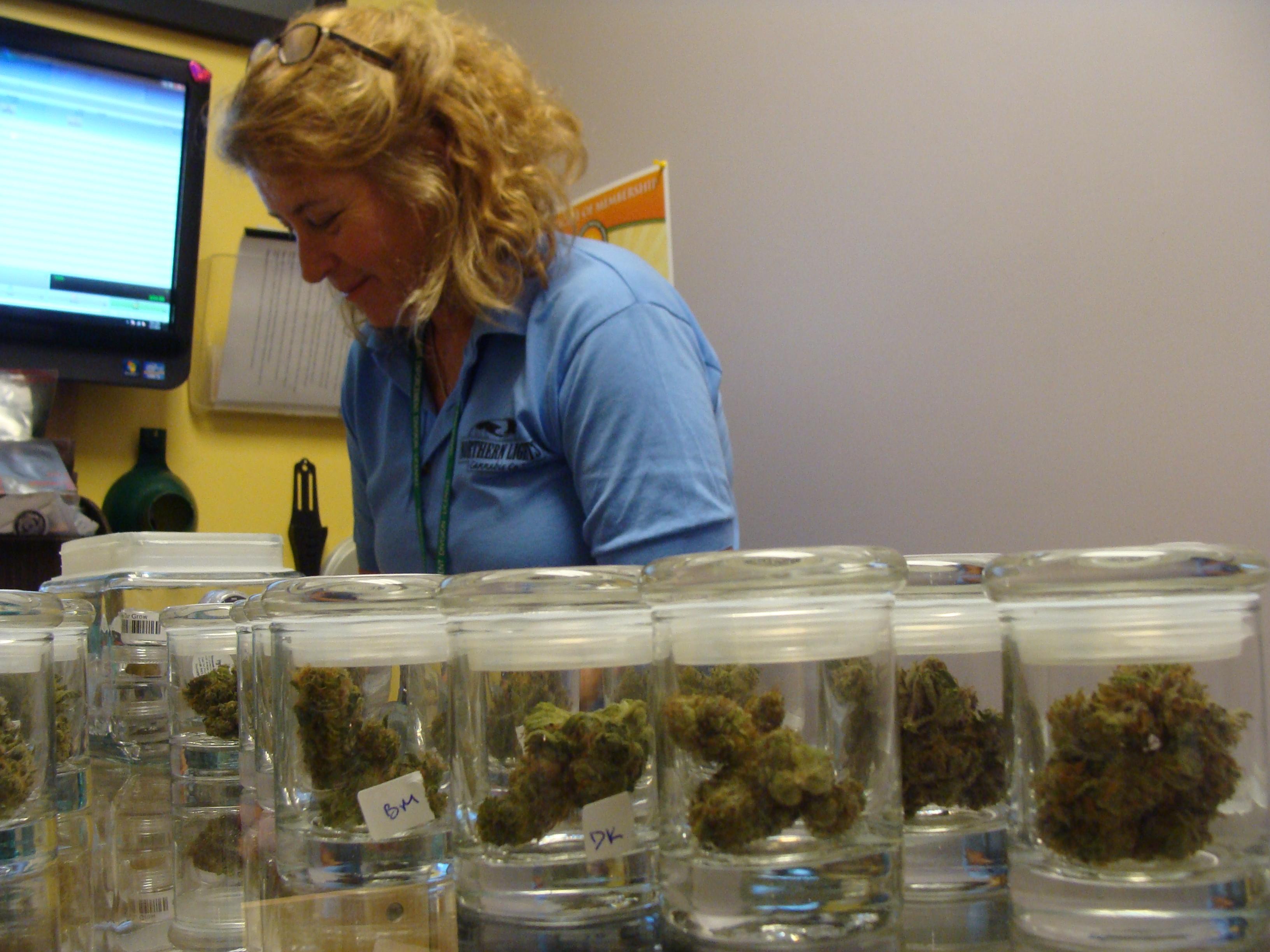
On a recent afternoon, outside LoDo Wellness Center in Denver, most customers leave the shop with smiles on their faces and a small bag of marijuana in their hands.
But customers like Justin Riddle have a different perspective.
“I didn’t buy anything, because it’s too expensive,” Riddle says. “That’s ridiculous, I can just go to my dealer right down the road and (expletive) get it, $10 a gram.”
LoDo Wellness Center is charging more than double that price, as are most other recreational marijuana shops in the state. Recreational sales are exceeding expectations and far outpacing supply. Roughly 85 percent of the state’s eligible medical dispensaries have yet to convert to recreational sales, but not because they aren't interested.
Norton Arbelaez owns the RiverRock medical marijuana dispensary in North Denver. He hopes to expand his business and start selling recreational pot March 1, but he needs approval from five different Denver agencies before he can get a retail marijuana license.
“Every arm of city government is involved in the regulation of this industry, as it should be,” Arbelaez says.
During a fire inspection of the property, Arbelaez was told he needs to upgrade the sprinkler system – at a cost of $60,000. The industry estimates that marijuana grow houses fill a combined 1 million square feet of commercial real estate in Colorado, and Arbelaez says a lot of that was originally vacant and rundown.
“When you’re talking about rehabbing a lot of this old industrial space, you’re talking electricity, roofs, fire sprinklers –the list goes on and on and on,” Arbelaez says.
There are no long-established building codes for marijuana. Three years ago, medical marijuana dispensaries popped up so fast that lawmakers were taken off guard.
“The learning curve is steep, because it hasn’t been done before,” Arbelaez says.
Regulations weren’t passed until most were already open for business, overwhelming Denver enforcement officials. Since so many dispensaries were not properly inspected at the time of their opening, they don't currently have the final approval to operate as retail marijuana shops.
“Some people may call it catching up,” says Larry Stevenson, director of safety for Denver's Excise and Licensing Department. “Some people may call it making up. We just call it being complete, and we’re going to be thorough, and we’re going to insure that our communities, collectively, are safe.”
Stevenson says the city is moving as fast as it can to get licenses approved, but he admits that dealing with so many city agencies is a natural drag on the process.
Dispensary attorney Sean McAllister says that while the city plays catch-up, some of his clients are ready to make the switch – and they and their pot supplies are being forced sit on the sidelines.
“The lack of a rollout in a quick fashion means that the market is distorted,” McAllister says. “Some dispensaries are making tons of money over others, and it doesn’t have anything to do with skill or talent – just has to do with the fact that they’ve been permitted sooner.”
But even McAllister agrees that, despite the hurdles, most of Denver’s 200 medical dispensaries will eventually become recreational. They’ll build out their grow operations and the price will come down.
The City of Denver isn’t giving an official timeline for processing all of the applications, since so much depends on the dispensary owners doing their part. Shop owner Norton Arbelaez estimates at this pace, it could take up to three years.
“Eventually, the supply will meet demand and the market will sort itself out,” Arbelaez says.
Map: Recreational pot landscape far from complete
About 1/3 of medical shops that have applied to convert to recreational sales are open.
Map created by CPR with data from Marillow and the Colorado Department of Revenue







